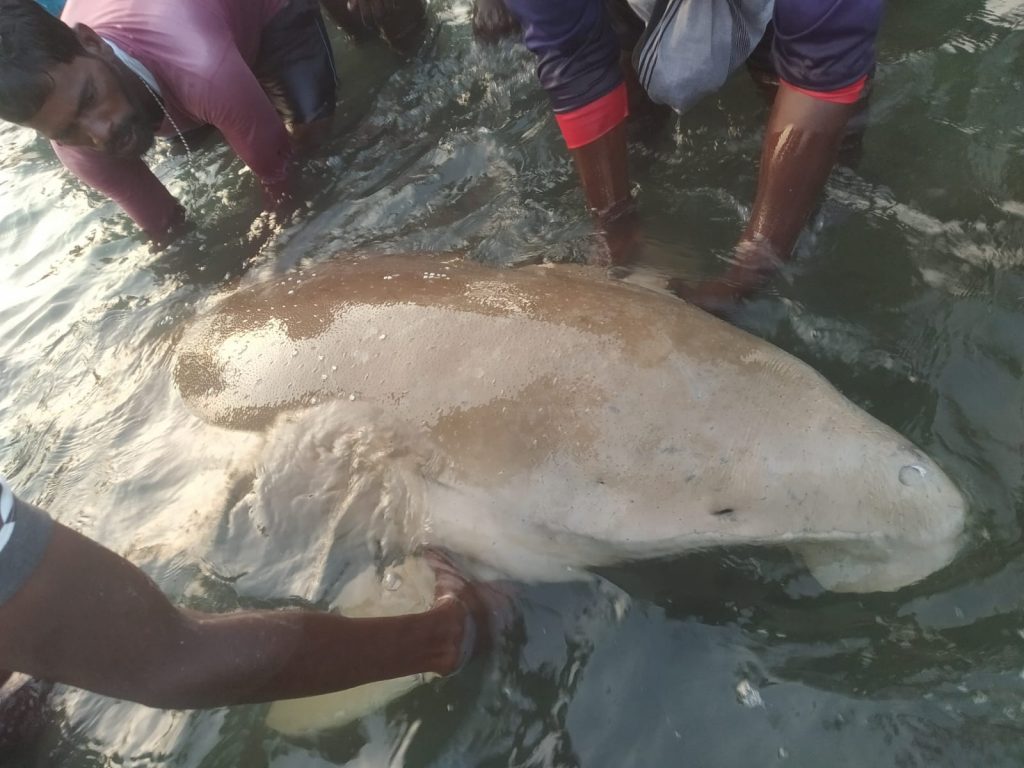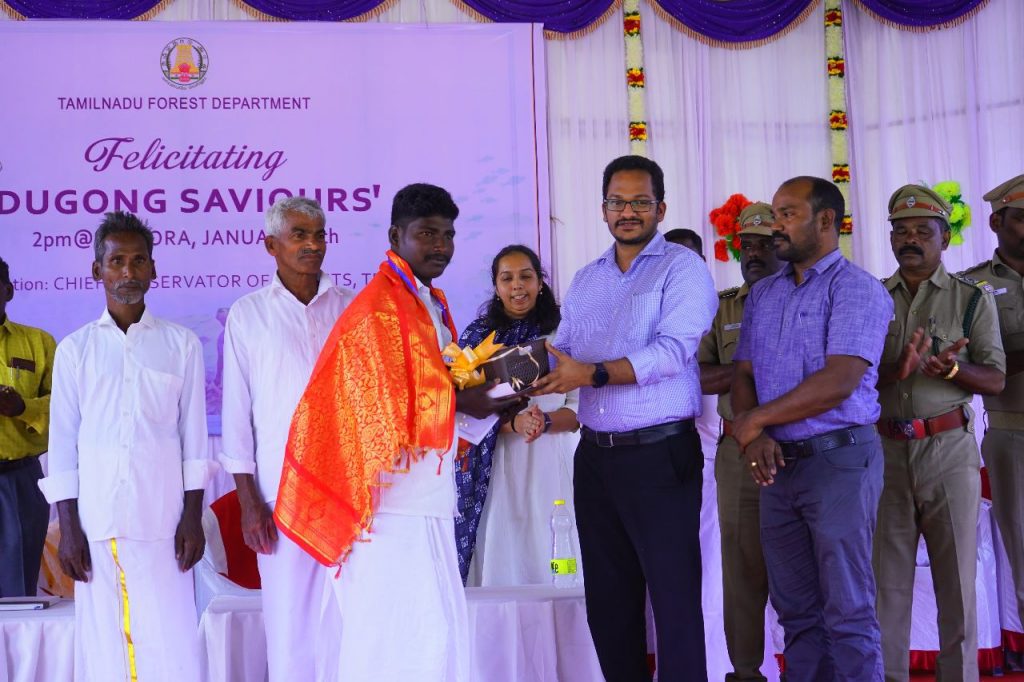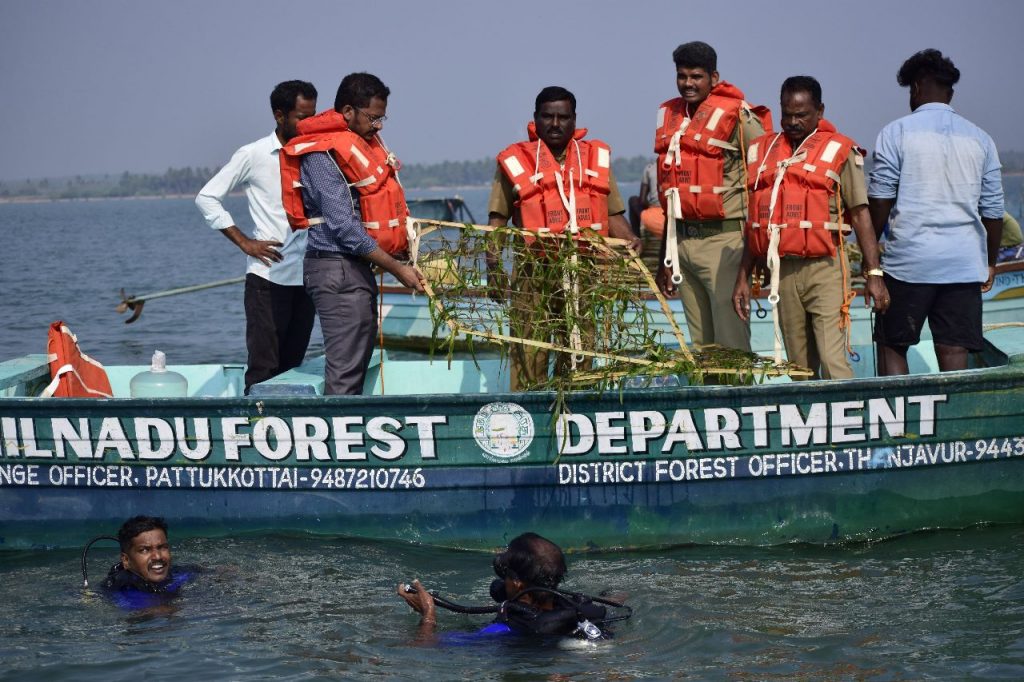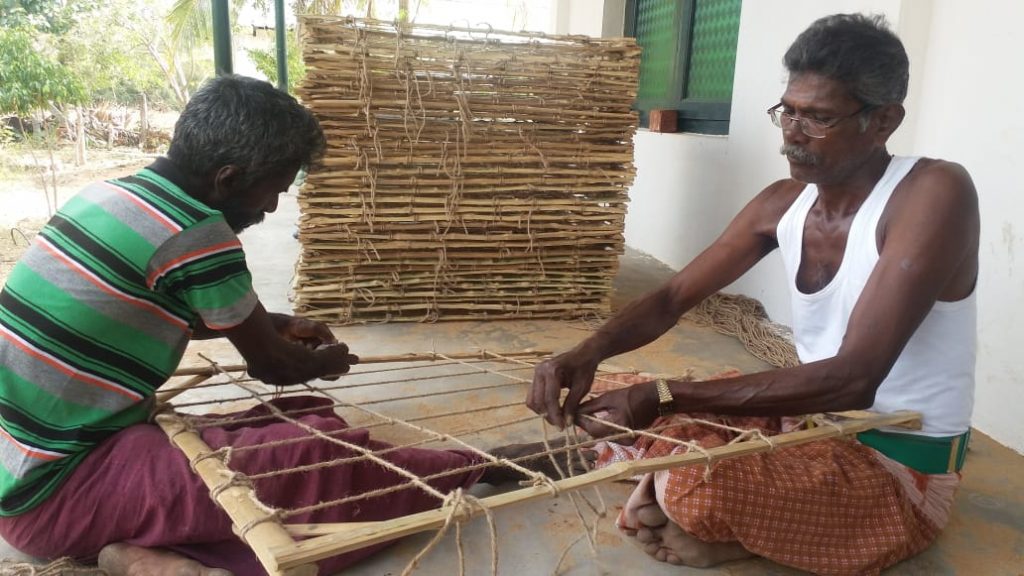In Tamil Nadu’s beautiful Palk Bay, where the azure blue waves playfully rolls onto the beaches of Thanjavur and Pudukottai, something amazing is happening! While the sea is calm and turbulent by turn, much activity is going on deep underwater where people are busy working to protect the Dugong, a gentle sea creature that has almost disappeared.
It is like a quiet underwater dance, with everyone playing a part to keep the Dugong safe and healthy. Welcome to India’s first Dugong Conservation Reserve, a sanctuary for the gentle giants of the sea, where the tides of change are ushering in a new era of marine protection.
DUGONG CONSERVATION RESERVE
It is a secluded haven covering 448 square kilometers, a refuge for the Dugong, an endangered species with a population of mere hundreds. In the vast expanse of India, the Palk Bay emerges as a significant stronghold, hosting around 150 of these elusive creatures.
Last September, the government of Tamil Nadu etched history by officially declaring the Dugong Conservation Reserve, marking a monumental stride in the battle to preserve this vulnerable species and revitalize marine biodiversity.

Speaking with Indian Masterminds, IFS officer Akhil Thampi unveiled the intricate tapestry of initiatives undertaken to safeguard the Dugong population and rejuvenate its habitat. The story unfolds in layers, revealing a narrative of resilience, community engagement, and the delicate balance between humanity and nature.
CONSULTING COASTAL COMMUNITIES
Mr. Thampi explained that the declaration of the reserve was not a bureaucratic decree but a culmination of extensive consultations with the coastal communities. The locals, the true custodians of the land and sea, played a pivotal role in shaping the conservation efforts. Their first-hand experiences and insights paved the way for a ground-up approach, ensuring that the reserve was not just a legal designation but a shared commitment towards safeguarding marine life.

In the wake of the declaration, the region witnessed a surge in initiatives aimed at understanding and preserving the Dugong. Mr. Thampi and his team embarked on comprehensive studies, delving into the secrets of the elusive sea creatures. Crucially, the local communities became active partners in the protection efforts.
Once plagued by instances of poaching and hunting, the shift in awareness has led to a remarkable reduction in such illegal activities. In fact, the communities are now actively involved in the conservation, with rewards offered for each successful Dugong rescue.
“This year alone, three Dugong rescues have taken place,” Mr. Thampi proudly shared, highlighting the tangible impact of community involvement. “Over 1.5 lakh rupees have been disbursed as rewards,” he added.

CHALLENGES
However, the challenges are not mere footnotes in this narrative. Trawlers, with their indiscriminate methods, pose a significant threat to the delicate sea grass beds that sustain the Dugong population. Recognizing this, the forest department is actively engaged in sea grass restoration activities. Sea grass, the lifeblood of Dugongs, has faced degradation due to climatic changes and extensive fishing. Now, a unique collaboration with local fishermen sees the creation of bamboo-framed sea grass beds, a testament to the integration of conservation with livelihood enhancement.
“We are not just saving Dugongs; we are securing the future of our fishermen,” Mr. Thampi emphasized, underlining the symbiotic relationship between marine conservation and community well-being.

INTERNATIONAL CENTRE
As the efforts in Palk Bay gain momentum, a beacon of global collaboration is set to illuminate the horizon. An International Dugong Conservation Centre is coming up in Manora of Thanjavur district, promising a hub for researchers worldwide to share experiences, explore, and contribute to the global understanding of Dugong conservation. With a sea grass research lab and plans for eco-tourism, the center symbolizes a commitment to education and collaboration in the pursuit of marine preservation.





































